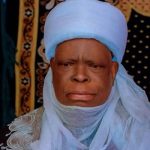The League of Civil Society Organisations in Kano State has called on the Nigeria Police Force to exercise restraint and fairness in its investigation of the publisher of Daily Nigerian, Jaafar Jaafar, warning that the matter could become a test case for press freedom and democracy in the country.
Jaafar was recently invited by the Assistant Inspector General of Police, Zone 1 Headquarters, Kano, on the directive of Chief Magistrate Court No. 15, Nomansland, following a petition of alleged criminal defamation filed by the Director-General of Protocol to the Kano State Governor, Abdullahi Rogo.
In a statement signed by 22 groups under the League, the coalition expressed concern that the case was linked to Jaafar’s publications alleging that Rogo’s office diverted N6.5bn, a matter reportedly under investigation by both the Economic and Financial Crimes Commission (EFCC) and the Independent Corrupt Practices and Other Related Offences Commission (ICPC).
While acknowledging the police’s constitutional role in investigating complaints, the groups cautioned against what they described as the political weaponisation of state institutions.
The statement read in part:
“We are compelled to stress that such investigations must be conducted within the boundaries of fairness, justice, and due process. The police should not, under any guise, be used as instruments of political suppression or intimidation against journalists whose constitutional role is to expose corruption and hold leaders accountable.”
The coalition maintained that the press remains central to democracy and must not be criminalised for carrying out its duties.
“Journalists are not only the watchdogs of society but also the voices of the voiceless and defenders of truth. As the Fourth Estate of the Realm, the press has a sacred mandate enshrined in the Constitution of the Federal Republic of Nigeria,” the statement added.
Quoting Sections 22 and 39 of the 1999 Constitution (as amended), the groups said any attempt to muzzle the media undermines constitutional guarantees and weakens democratic institutions.
They further cautioned against what they described as a growing trend of using state institutions to settle political scores, warning that such practices erode public trust and embolden corruption.
“We therefore strongly urge the Nigeria Police Force, particularly Zone 1 Headquarters in Kano, to approach this matter with utmost caution and impartiality. Justice must not only be done but must also be seen to be done in the eyes of the public,” the coalition stressed.
The CSOs also advised the judiciary to be cautious in granting orders that could be exploited to silence critical voices, insisting that courts must prioritise the protection of fundamental rights.
“The fight against corruption is a collective responsibility, and journalists should be commended, not persecuted, for their contributions. The preservation of press freedom, human rights, and democratic governance is not negotiable,” the groups said.
Signatories to the statement included representatives of Wuro Development Concerns, Centre for Human Rights and Social Advancement, Youth Enlightenment Forum, United Action for Democracy, Gender Inclusive and Development Support Initiative, and the Kano Youth Integrity Forum, among others.






